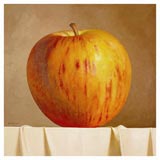What are Carbohydrates?

What are carbohydrates exactly? Carbohydrates are composed of a combination of starches, sugar and
dietary fiber.
The body breaks carbohydrates down into glucose which is the type of sugar (fuel) our cells use to provide the body with energy it needs for growth & physical activity. All carbs are not created equal. There are the good slow releasing/complex carbs and the bad fast releasing/simple carbs. A diet containing an optimum level of good carbs may help prevent body fat accumulation. Complex carbs contain dietary fiber which helps keep the bowel functioning correctly – aiding the prevention of many forms of cancer. Good carbs - Are digested slowly keeping your blood sugar stable.
- They help you feel fuller for longer and have many health benefits.
- Whole grains, beans/pulses, fruits & veggies are good carbohydrates.
- They also contain
dietary fiber
which is essential to our body’s well being.
Bad carbs - Are foods that have been stripped of all their goodness.
- They have been refined to make cooking fast and easy and as a result have been stripped of all bran, dietary fiber & nutrients.
- They digest really quickly which gives a sudden burst of energy, raising blood sugar levels which is followed by an energy slump leaving you feeling irritable and hungry – which in time could lead to weight gain or even type 2 diabetes.
- White rice, refined flour, most refined foods, sugar, malt, honey and sweets are examples of bad carbohydrates.

65% of your total calorie intake should consist of good carbs. We can achieve this by eating: - 3 or more servings of root, dark green & leafy veggies such as carrots, sweet potatoes, broccoli, brussels sprouts, green beans, peppers & spinach.
- 3 or more servings of fruit such as apples, bananas, citrus, berries, pears & melon.
- 3 or more servings of whole grains & pulses such as oats, rice, rye, whole wheat, corn, quinoa, beans and lentils. These can be eaten in the form of cereal, bread & pasta.
Try to avoid or at the very least limit your intake of bad carbs – which is anything containing refined foods & added sugar. Eat
protein
with complex carbs as this helps stabilise blood sugar and helps you feel fuller for longer.
Dietary fiber
intake is essential to good health. Here are some of the benefits of a high fiber diet: - Fiber retains water resulting in softer bulkier stools that prevent constipation and haemorrhoids.
- Reduces the risk of colon cancer by keeping the digestive tract clean and speeding up the rate at which the stool passes through the intestine.
- Binds with substances that would result in cholesterol production and eliminates them from the body.
- Helps lower blood cholesterol – lowering the risk of heart disease.
If you have ever wondered "what are carbohydrates?" I trust that you have found your answer and that you can go ahead and make informed and healthy eating choices for yourself and your family.
For some more info on carbs, please visit this very informative website:
Glycemic Index- GI has grown in popularity in recent years. It is a ranking of foods on how they affect blood glucose levels and is one of the most fundamental medical findings with implications in health, weight loss, fitness and disease management.
Return from What are Carbohydrates? to Nutrition Facts
Return from What are Carbohydrates? to Healthy Family Eating Home Page
|







